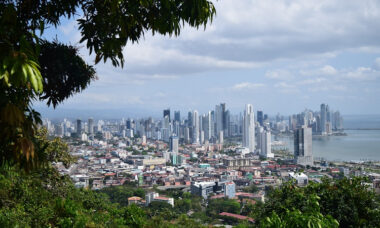 Panama has legalised medical cannabis and set up an agency to oversee cannabis industry security in a move aimed at both patient welfare and economic opportunity. And there is already interest from at least one US company.
Panama has legalised medical cannabis and set up an agency to oversee cannabis industry security in a move aimed at both patient welfare and economic opportunity. And there is already interest from at least one US company.
Colorado-based Higher Yields Cannabis Consulting has announced that it “will tour potential offices in Panama to increase its presence and involvement in the Latin American cannabis market”.
This follows a decree signed last month by Panama’s president Laurentino Cortizo establishing the National Direction for the Monitoring of Activities Related to Medicinal Cannabis. The agency will come under Panama’s Public Security Ministry and will oversee the transport, storage and management of cannabis, as well as the implementation of the new law, Cortizo said.
He added that he hopes local and international companies supplied dealing in Panamanian-produced medical cannabis products will be able to serve both home and foreign markets.
“It’s important to highlight that we are inviting research centres, specialised institutes and universities that are world class and renowned internationally so that they establish themselves in Panama with the objective of creating clinics and research centres that benefit our country and the world,” Cortizo said.
Regional leader
Law 242 of 2021, approved by the Legislative Assembly last year, “creates a regulatory framework that permits the use and monitored and controlled access of medicinal cannabis and its derivatives for therapeutic, medical, veterinary, scientific and research purposes in national territory.”
It establishes rules for import, export, cultivation, production, storage, transport, distribution and sales, and assures the right of patients to have access to medicinal cannabis under strict security, control, quality and monitoring rules.
Panama was the first Central American country to enact and implement a law regulating a newly created medicinal cannabis industry. Costa Rica, which borders Panama to the north, ratified similar decrees on 28th September, implementing legislation passed in June 2022.
“This is one of the most solid regulations at a regional level,” Cortizo said. “It permits the consumption of processed cannabis and provides relief for thousands of patients. We’re pleased to be able to provide this resource to the thousands of Panamanians who have been waiting for this alternative for years.”
Cannabis for medicinal purposes must be produced in a controlled environment and growers must be licensed by the Panama Health Ministry, which will oversee the authorisation of imports, exports, production and sales.
The Agricultural Development Ministry will oversee the distribution of cannabis seeds for cultivation and plant development.
Two types of licences will be offered – one to produce medicinal cannabis and one for scientific research involving the plant.
Licences and controls
Production licences will be dependent on a number of requirements, including financial solvency and access to land for cultivation. The licence will be valid for ten years and also permit the import, export, transport, consumption, sale and storage of the plant.
For the first five years under the new law, the Health Ministry will authorise a maximum of seven medical cannabis production licences.
“Sales of cannabis products will be done under strict import controls,” Cortizo said. “These will include tracing measures that include monitoring from the areas of cultivation, to the laboratories, to the points of final sale.”
Research licences will be granted to universities recognised by the state, as well as to scientific research centres. The health and agricultural development ministries will conduct campus and site visits.
Patients seeking to use medicinal cannabis must register with the Health Ministry and disclose information about their illness or ailments that require or justify cannabis treatment. The register will be confidential.
The Health Ministry will also create a National Program for the Study and Medicinal Use of Cannabis and its Derivatives, which will conduct research into the therapeutic uses of cannabis for certain illnesses.
– Adam Williams CBD-Intel contributing writer
Photo: Mariel Nicosia







